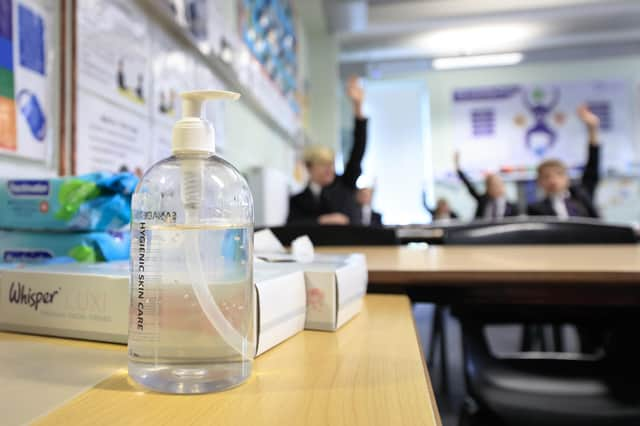Pupils excluded for breaching Covid rules


Department for Education figures show "wilful and repeated transgression of protective measures" was the reason behind 29 exclusions from schools in the area during the 2020-21 academic year.
Of these, 27 were in secondary schools and one in a primary school.
Advertisement
Hide AdAdvertisement
Hide AdThey were among 12,965 pupils in England send home for reasons including non-compliance with social distancing, causing distress such as by purposefully coughing near to others, or other deliberate breaches of a school's public health measures.
In Hartlepool, there were a total of 1,258 exclusions – 1,256 temporary and two permanent - for all reasons last year, fewer than the 1,279 in 2019-20.
Of the 16 possible reasons for exclusion, public health was the fifth most frequent.
The most common reasons were for persistent disruptive behaviour (57%), verbal abuse or threatening behaviour towards an adult (15%) and physical assault against a pupil (13%).
Advertisement
Hide AdAdvertisement
Hide AdJulie McCulloch, director of policy at the Association of School and College Leaders, said schools worked very hard to keep pupils and staff safe during the pandemic, and it is not unreasonable that young people should be expected to comply with these measures.
The National Association of Head Teachers said schools following guidance were sometimes forced to suspend students in cases of persistent rule breaking and unsafe behaviour, with school leaders making tough decisions to keep everyone safe.
A Department for Education spokeswoman said permanent exclusions are a rare but necessary way of managing behaviour – but should not mean exclusion from education.